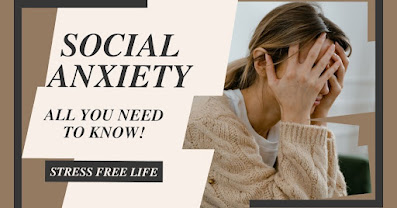Social Anxiety: Understand its Meaning, Symptoms, Causes and Treatment!
What is Social Anxiety?
Symptoms of Social Anxiety
1. Fear of Judgment
Individuals with social anxiety may fear being scrutinized or negatively evaluated by others in social situations, leading to avoidance of social interactions.
2. Physical Symptoms
Physical manifestations of social anxiety may include sweating, trembling, rapid heartbeat, shortness of breath, nausea, and dizziness.
3. Avoidance Behavior
Avoidance of social situations or enduring them with extreme discomfort is a common symptom of social anxiety. This avoidance can significantly impact daily functioning and quality of life.
4. Negative Self-Perception
Individuals with social anxiety often have a negative self-image and may perceive themselves as inadequate, inferior, or unlikable.
Causes of Social Anxiety
The development of social anxiety can be influenced by various factors, including:
a) Genetics:
There may be a genetic predisposition to social anxiety, with a family history of anxiety disorders increasing the risk of developing social anxiety.
b) Brain Chemistry:
Imbalances in neurotransmitters, such as serotonin and dopamine, may contribute to the development of social anxiety.
c) Environmental Factors:
Traumatic or negative social experiences, such as bullying or rejection, can exacerbate social anxiety and contribute to its development.
Treatment Options
Fortunately, social anxiety is a treatable condition, and several effective treatment options are available:
1. Therapy:
Cognitive-behavioral therapy (CBT) is the gold standard for treating social anxiety. CBT helps individuals identify and challenge negative thought patterns, develop coping strategies, and gradually confront feared social situations.
2. Medication:
Antidepressants, particularly selective serotonin reuptake inhibitors (SSRIs), may be prescribed to help alleviate symptoms of social anxiety.
3. Exposure Therapy:
Gradual exposure to feared social situations, under the guidance of a therapist, can help individuals overcome avoidance behavior and reduce anxiety.
4. Mindfulness and Relaxation Techniques:
Practices such as mindfulness meditation, deep breathing exercises, and progressive muscle relaxation can help manage anxiety symptoms and promote relaxation in social situations.




Comments
Post a Comment
If you have any doubts, please let me know.